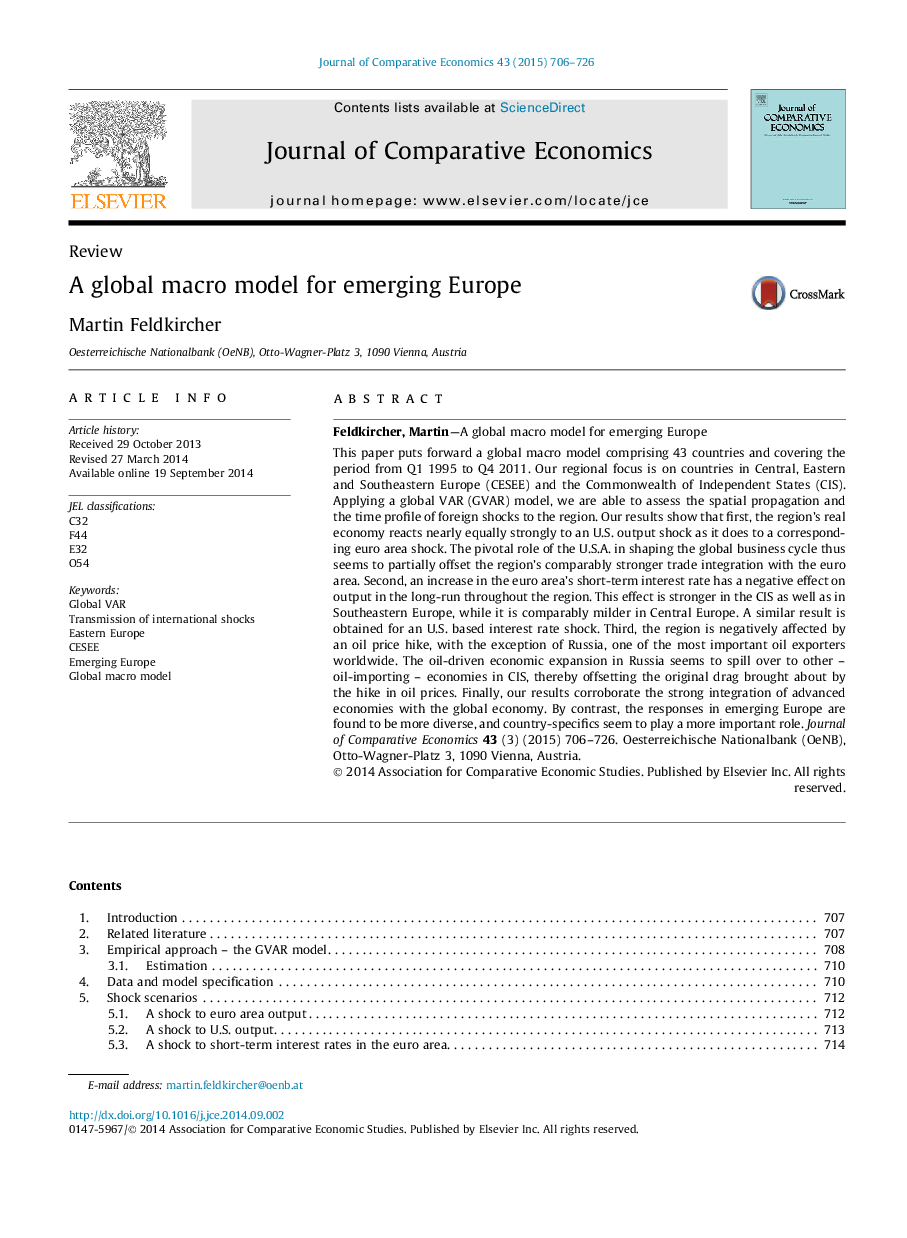| Article ID | Journal | Published Year | Pages | File Type |
|---|---|---|---|---|
| 5092071 | Journal of Comparative Economics | 2015 | 21 Pages |
â¢In this paper we employ a global macro model for Central, Eastern and Southeastern Europe (CESEE) and the Commonwealth of Independent States (CIS).â¢We look at five different external macro-shocks and assess the effect on the countries' real economy.â¢We show that spillovers emanating from the euro area and the U.S.A. are substantial for the region.â¢This holds true for both unexpected fluctuations in foreign output and foreign shortterm interest rates.â¢Finally, the region is negatively affected by an oil price hike, with the exception of Russia - and through knock-on effects, other CIS.
This paper puts forward a global macro model comprising 43 countries and covering the period from Q1 1995 to Q4 2011. Our regional focus is on countries in Central, Eastern and Southeastern Europe (CESEE) and the Commonwealth of Independent States (CIS). Applying a global VAR (GVAR) model, we are able to assess the spatial propagation and the time profile of foreign shocks to the region. Our results show that first, the region's real economy reacts nearly equally strongly to an U.S. output shock as it does to a corresponding euro area shock. The pivotal role of the U.S.A. in shaping the global business cycle thus seems to partially offset the region's comparably stronger trade integration with the euro area. Second, an increase in the euro area's short-term interest rate has a negative effect on output in the long-run throughout the region. This effect is stronger in the CIS as well as in Southeastern Europe, while it is comparably milder in Central Europe. A similar result is obtained for an U.S. based interest rate shock. Third, the region is negatively affected by an oil price hike, with the exception of Russia, one of the most important oil exporters worldwide. The oil-driven economic expansion in Russia seems to spill over to other - oil-importing - economies in CIS, thereby offsetting the original drag brought about by the hike in oil prices. Finally, our results corroborate the strong integration of advanced economies with the global economy. By contrast, the responses in emerging Europe are found to be more diverse, and country-specifics seem to play a more important role.
